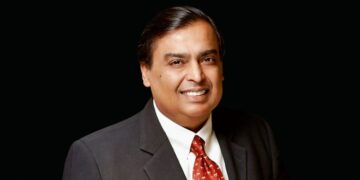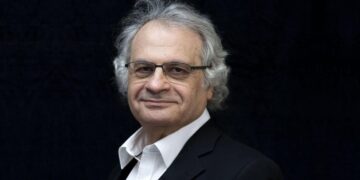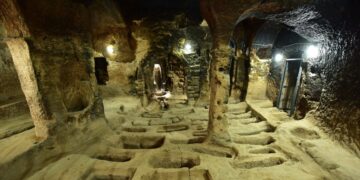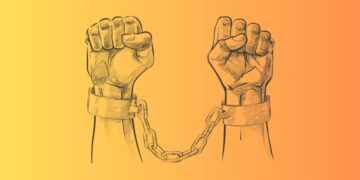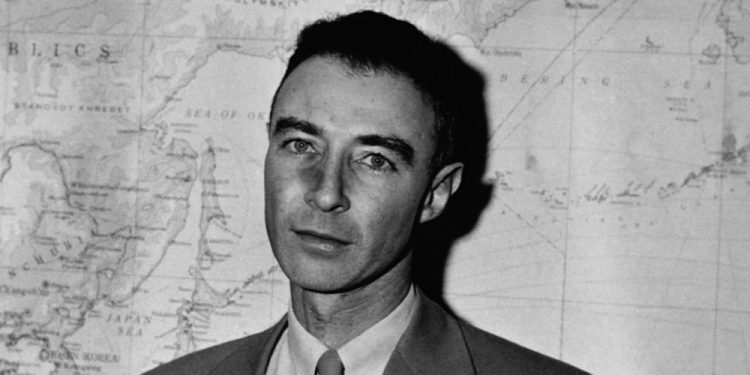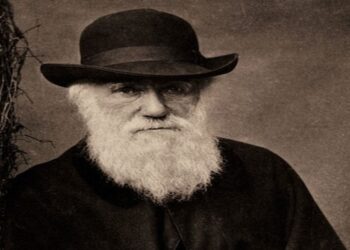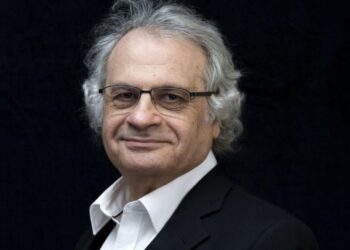Julius Robert Oppenheimer was an American theoretical physicist and director of the Los Alamos Laboratory during World War II. He is often credited as the “father of the atomic bomb” for his role in organizing the Manhattan Project, the research and development undertaking that created the first nuclear weapons. Born to German Jewish immigrants in New York City, J. Robert Oppenheimer earned a bachelor’s degree in chemistry from Harvard University in 1925 and a PhD in physics from the University of Göttingen in Germany in 1927.
After research at other institutions, he joined the physics department at the University of California, Berkeley, where he became a full professor in 1936. He made significant contributions to theoretical physics, including achievements in quantum mechanics and nuclear physics such as the Born-Oppenheimer approximation for molecular wave functions, work on the theory of electrons and positrons, the Oppenheimer-Phillips process in nuclear fusion, and the first prediction of quantum tunneling.
With his students, he also made contributions to the theory of neutron stars and black holes, quantum field theory, and the interactions of cosmic rays. In 1942, Oppenheimer was recruited to work on the Manhattan Project, and in 1943 was appointed director of the project’s Los Alamos Laboratory in New Mexico, tasked with developing the first nuclear weapons, four years after the start of the German nuclear weapons program. His leadership and scientific expertise were instrumental in the project’s success. On July 16, 1945, he was present at the Trinity test of the first atomic bomb.
In August 1945, the weapons were used in the bombings of Hiroshima and Nagasaki in Japan, which remain the only use of nuclear weapons in an armed conflict. In 1947, Oppenheimer became the director of the Institute for Advanced Study in Princeton, New Jersey, and chaired the influential General Advisory Committee of the newly created United States Atomic Energy Commission. He lobbied for international control of nuclear power, to avert nuclear proliferation and a nuclear arms race with the Soviet Union.
He opposed the development of the hydrogen bomb during a 1949-1950 governmental debate on the question and subsequently took positions on defense-related issues that provoked the ire of some U.S. government and military factions. During the Second Red Scare, Oppenheimer’s stances, together with past associations he had with people and organizations affiliated with the Communist Party USA, led to the revocation of his security clearance following a 1954 security hearing.
Effectively stripped of his direct political influence, he continued to lecture, write, and work in physics. In 1963, President John F. Kennedy awarded him (and Lyndon B. Johnson presented him with) the Enrico Fermi Award as a gesture of political rehabilitation. In 2022, the U.S. government vacated its 1954 decision, saying that the process had been flawed.
Some of the best quotes from J. Robert Oppenheimer are listed below.
- “A pragmatist is concerned with results, not reality.” – J. Robert Oppenheimer
- “Access to the Vedas is the greatest privilege this century may claim over all previous centuries.” – J. Robert Oppenheimer
- “All history teaches us that these questions that we think the pressing ones will be transmuted before they are answered, that they will be replaced by others, and that the very process of discovery will shatter the concepts that we today use to describe our puzzlement.” – J. Robert Oppenheimer
- “Any man whose errors take ten years to correct is quite a man.” – J. Robert Oppenheimer
- “Both the man of science and the man of art live always at the edge of mystery, surrounded by it; both always, as to the measure of their creation, have had to do with the harmonization of what is new with what is familiar, with the balance between novelty and synthesis, with the struggle to make partial order in total chaos.” – J. Robert Oppenheimer
- “Discovery follows discovery, each both raising and answering questions, each ending a long search, and each providing the new instruments for a new search.” – J. Robert Oppenheimer
- “Genius sees the answer before the question.” – J. Robert Oppenheimer
- “I am become death, the destroyer of worlds.” – J. Robert Oppenheimer
- “I can’t think that it would be terrible of me to say – and it is occasionally true – that I need physics more than friends.” – J. Robert Oppenheimer
- “I need physics more than friends.” – J. Robert Oppenheimer
- “I would urge the principle of self-limitation in regard to wealth,” and he made this “plea to the wealthy”: The first step to take, it they would set themselves right, is to live in the midst of superfluous wealth as if they were not the possessors of it; that is, to take for their own use only what they require for the essentials of a civilized life, and to regard the rest as a deposit for the general good, of which they themselves are not to be the beneficiaries.” – J. Robert Oppenheimer
- “If atomic bombs are to be added as new weapons to the arsenals of a warring world, or to the arsenals of nations preparing for war, then the time will come when mankind will curse the names of Los Alamos and Hiroshima. The people must unite, or they will perish.” – J. Robert Oppenheimer
- “If we must live with a perpetual sense that the world and the men in it are greater than we and too much for us, let it be the measure of our virtue that we know this and seek no comfort.” – J. Robert Oppenheimer
- “If you are a scientist, you believe that it is good to find out how the world works; that it is good to find out what the realities are; that it is good to turn over to mankind at large the greatest possible power to control the world and to deal with it according to its lights and values.” – J. Robert Oppenheimer
- “In a free world, if it is to remain free, we must maintain, with our lives if need be, but surely by our lives, the opportunity for a man to learn anything.” – J. Robert Oppenheimer
- “In the material sciences these are and have been, and are most surely likely to continue to be heroic days.” – J. Robert Oppenheimer
- “It is a profound and necessary truth that the deep things in science are not found because they are useful; they are found because it was possible to find them.” – J. Robert Oppenheimer
- “It is perfectly obvious that the whole world is going to hell. The only possible chance that it might not is that we do not attempt to prevent it from doing so.” – J. Robert Oppenheimer
- “It is proper to the role of the scientist that he not merely find new truth and communicate it to his fellows, but that he teaches, that he try to bring the most honest and intelligible account of new knowledge to all who will try to learn.” – J. Robert Oppenheimer
- “Knowledge cannot be pursued without morality.” – J. Robert Oppenheimer
- “Maybe General Groves was right. Maybe we should just banish thinking forever.” – J. Robert Oppenheimer
- “Mr. President, I have blood on my hands.” – J. Robert Oppenheimer
- “My childhood did not prepare me for the fact that the world is full of cruel and bitter things.” – J. Robert Oppenheimer
- “No man should escape our universities without knowing how little he knows.” – J. Robert Oppenheimer
- “Pragmatism is an intellectually safe but ultimately sterile philosophy.” – J. Robert Oppenheimer
- “Science is not everything, but science is very beautiful.” – J. Robert Oppenheimer
- “Science starts with preconception, with the common culture, and with common sense. It moves on to observation, is marked by the discovery of paradox, and is then concerned with the correction of preconception. It moves then to use these corrections for the designing of further observation and for more refined experiments. And as it moves along this course the nature of the evidence and experience that nourish it becomes more and more unfamiliar; it is not just the language that is strange [to common culture].” – J. Robert Oppenheimer
- “Sometimes the answer to fear does not lie in trying to explain away the causes, sometimes the answer lies in courage.” – J. Robert Oppenheimer
- “Taken as a story of human achievement, and human blindness, the discoveries in the sciences are among the great epics.” – J. Robert Oppenheimer
- “The atomic bomb made the prospect of future war unendurable. It has led us up those last few steps to the mountain pass; and beyond there is a different country.” – J. Robert Oppenheimer
- “The best way to send information is to wrap it up in a person.” – J. Robert Oppenheimer
- “The great testimony of history shows how often, in fact, the development of science has emerged in response to technological and even economic needs, and how in the economy of social effort, science, even of the most abstract and recondite kind, pays for itself again and again in providing the basis for radically new technological developments.” – J. Robert Oppenheimer
- “The greatest of the changes that science has brought is the acuity of change; the greatest novelty the extent of novelty.” – J. Robert Oppenheimer
- “The history of science is rich in example of the fruitfulness of bringing two sets of techniques, two sets of ideas, developed in separate contexts for the pursuit of new truth, into touch with one another.” – J. Robert Oppenheimer
- “The most beautiful philosophical song existing in any known tongue.” – J. Robert Oppenheimer
- “The open society, the unrestricted access to knowledge, the unplanned and uninhibited association of men for its furtherance-these are what may make a vast, complex, ever growing, ever changing, ever more specialized and expert technological world, nevertheless a world of human community.” – J. Robert Oppenheimer
- “The optimist thinks this is the best of all possible worlds. The pessimist fears it is true.” – J. Robert Oppenheimer
- “The people of this world must unite or they will perish.” – J. Robert Oppenheimer
- “The physicists have known sin; and this is a knowledge which they cannot lose.” – J. Robert Oppenheimer
- “The theory of our modern technic shows that nothing is as practical as theory.” – J. Robert Oppenheimer
- “The true scientist never loses the faculty of amusement. It is the essence of his being.” – J. Robert Oppenheimer
- “There are children playing in the streets who could solve some of my top problems in physics, because they have modes of sensory perception that I lost long ago.” – J. Robert Oppenheimer
- “There are no secrets about the world of nature. There are secrets about the thoughts and intentions of men.” – J. Robert Oppenheimer
- “There is something irreversible about acquiring knowledge; and the simulation of the search for it differs in a most profound way from the reality.” – J. Robert Oppenheimer
- “There must be no barriers for freedom of inquiry. There is no place for dogma in science. The scientist is free, and must be free to ask any question, to doubt any assertion, to seek for any evidence, to correct any errors.” – J. Robert Oppenheimer
- “Things which stimulate my curiosity are pretty far removed from the practical and therefore from classification.” – J. Robert Oppenheimer
- “To the confusion of our enemies.” – J. Robert Oppenheimer
- “To try to be happy is to try to build a machine with no other specification than that it shall run noiselessly.” – J. Robert Oppenheimer
- “Today, it is not only that our kings do not know mathematics, but our philosophers do not know mathematics and – to go a step further – our mathematicians do not know mathematics.” – J. Robert Oppenheimer
- “Truth, not a pet, is man’s best friend.” – J. Robert Oppenheimer
- “We do not believe any group of men adequate enough or wise enough to operate without scrutiny or without criticism. We know that the only way to avoid error is to detect it, that the only way to detect it is to be free to inquire. We know that in secrecy error undetected will flourish and subvert.” – J. Robert Oppenheimer
- “We do not believe any group of men adequate enough or wise enough to operate without scrutiny or without criticism. We know that the only way to avoid error is to detect it, that the only way to detect it is to be free to enquire. We know that the wages of secrecy are corruption. We know that in secrecy error, undetected, will flourish and subvert.” – J. Robert Oppenheimer
- “We hunger for nobility: the rare words and acts that harmonize simplicity and truth.” – J. Robert Oppenheimer
- “We knew the world would not be the same. A few people laughed, a few people cried. Most people were silent.” – J. Robert Oppenheimer
- “We knew the world would not be the same. A few people laughed, a few people cried. Most people were silent. I remembered the line from the Hindu scripture, the Bhagavad-Gita; Vishnu is trying to persuade the Prince that he should do his duty, and to impress him, takes on his multi-armed form and says, ‘Now I am become Death, the destroyer of worlds.’ I suppose we all thought that, one way or another.” – J. Robert Oppenheimer
- “We know that the wages of secrecy are corruption. We know that in secrecy, error undetected will flourish and subvert.” – J. Robert Oppenheimer
- “We know too much for one man to know too much.” – J. Robert Oppenheimer
- “We may be likened to two scorpions in a bottle, each capable of killing the other, but only at the risk of his own life.” – J. Robert Oppenheimer
- “When all thermonuclear sources of energy are exhausted a sufficiently heavy star will collapse. Unless fission due to rotation, the radiation of mass, or the blowing off of mass by radiation, reduce the star’s mass to the order of that of the sun, this contraction will continue indefinitely.” – J. Robert Oppenheimer
- “When we deny the EVIL within ourselves, we dehumanize ourselves, and we deprive ourselves not only of our own destiny but of any possibility of dealing with the EVIL of others.” – J. Robert Oppenheimer
- “When you see something technically sweet you go ahead and do it, and you argue about what to do about it, only after you have achieved success.” – J. Robert Oppenheimer
- “When you see something that is technically sweet you go ahead and do it.” – J. Robert Oppenheimer
- “When you see something that is technically sweet, you go ahead and do it and you argue about what to do about it only after you have had your technical success. That is the way it was with the atomic bomb.” – J. Robert Oppenheimer
- “You can certainly destroy enough of humanity so that only the greatest act of faith can persuade you that what’s left will be human.” – J. Robert Oppenheimer


































